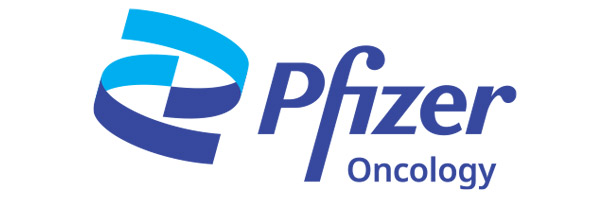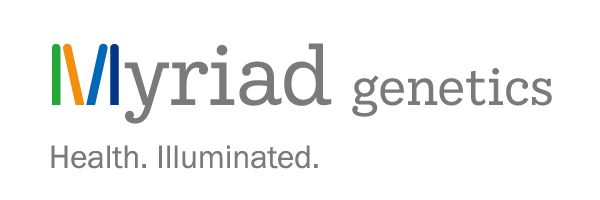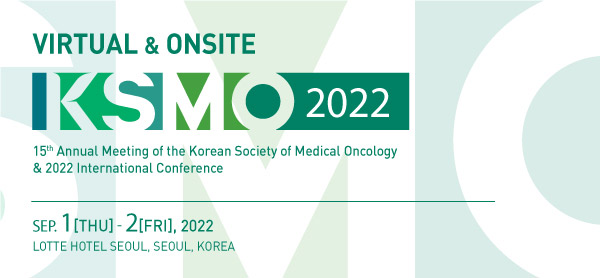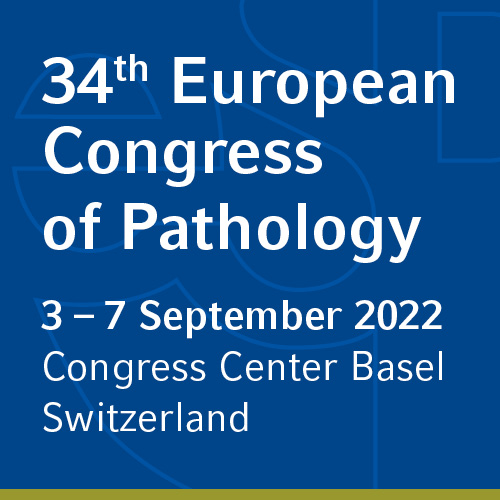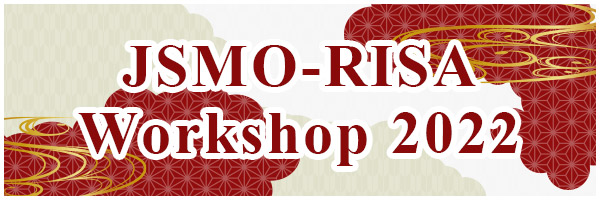Program
Presidential Session
Presidential Session 1
February 17 (Thu), 2022 16:10-18:00 (JST)
Room 1 (Kyoto International Conference Center 1F Main Hall)
- Chairs:
-
Yuichiro Ohe
Department of Thoracic Oncology, National Cancer Center Hospital
-
Martin Reck
Department of Thoracic Oncology, Lungenclinic
PS1-1
Phase III of nivolumab + platinum chemotherapy + bevacizumab in untreated advanced NSQ NSCLC: Updated OS of TASUKI-52
- Jin Hyoung Kang
- Department of Medical Oncology, The Catholic University of Korea, Seoul St. Mary's Hospital
- Discussant:
-
Myung-Ju Ahn
Department of Medical Oncology, Samsung Medical Center
PS1-2
CLIP1-LTK: a novel target in non-small cell lung cancer
- Hiroki Izumi
- Department of Thoracic Oncology, National Cancer Center Hospital East
- Discussant:
-
Benjamin Solomon
Department of Medical Oncology, Peter MacCallum Cancer Centre
PS1-3
Segmentectomy versus lobectomy in small-sized peripheral non-small cell lung cancer (JCOG0802/WJOG4607L): phase 3 trial
- MASAHIRO TSUBOI
- Department of Thoracic Surgery, National Cancer Center Hospital East
- Discussant:
-
Yi-Long Wu
Guangdong Lung Cancer Institute, Guangdong Provincial People's Hospital & Guangdong Academy of Medical Sciences
PS1-4
A randomized phase 3 study of nintedanib with chemotherapy vs. chemotherapy alone for advanced NSCLC with IPF (J-SONIC)
- Kohei Otsubo
- Department of Respiratory Medicine, Kitakyushu Municipal Medical Center
- Discussant:
-
Martin Reck
Department of Thoracic Oncology, Lungenclinic
PS1-5
IMpower010: results from Asian patients in a Phase 3 study of adjuvant atezolizumab in resected stage IB-IIIA NSCLC
- HIROTSUGU KENMOTSU
- Division of Thoracic Oncology, Shizuoka Cancer Center
- Discussant:
-
Tetsuya Mitsudomi
Department of Thoracic Surgery, Kindai University
Presidential Session 2
February 17 (Thu), 2022 8:30-10:00 (JST)
Room 8 (Kyoto International Conference Center 1F Sakura)
- Chairs:
-
Hiroji Iwata
Aichi Cancer Center Hospital
-
Tom Wei-Wu Chen
Department of Oncology, National Taiwan University Hospital
PS2-1
Trastuzumab Deruxtecan vs T-DM1 in HER2+ mBC in Asian Subgroup: Results of the Randomized Phase 3 Study DESTINY-Breast03
- Seock-Ah Im
- Seoul National University Hospital, Cancer Research Institute, Seoul National University College of Medicine, Seoul, Republic of Korea
- Discussant:
-
Junji Tsurutani
Advanced Cancer Translational Research Institute, Showa University
PS2-2
KEYNOTE-355 Asian Subset: Pembrolizumab + Chemotherapy vs Placebo + Chemotherapy for Triple-Negative Breast Cancer
- Takano Toshimi
- The Cancer Institute Hospital of JFCR/Toranomon Hospital
- Discussant:
-
Tsutomu Iwasa
Department of Medical Oncology, Kindai University Faculty of Medicine
PS2-3
Neoadjuvant Pembrolizumab/Placebo + Chemo, Followed by Adjuvant Pembrolizumab/Placebo in Early TNBC: Asian Subgroup
- MASATO TAKAHASHI
- Department of Breast Surgery, NHO Hokkaido Cancer Center
- Discussant:
-
Naoki Niikura
Department of Breast Oncology, Tokai University
PS2-4
Efficacy and safety of trastuzumab deruxtecan in HER2-expressing uterine carcinosarcoma: STATICE TRIAL (NCCH1615)
- KOJI MATSUMOTO
- Hyogo Cancer Center
- Discussant:
-
Katsutoshi Oda
Division of Integrative Genomics, The University of Tokyo
Presidential Session 3
February 18 (Fri), 2022 8:20-10:35 (JST)
Room 1 (Kyoto International Conference Center 1F Main Hall)
- Chairs:
-
Chikashi Ishioka
Department of Clinical Oncology, Tohoku University Graduate School of Medicine
-
Ian Chau
Department of Medicine, Royal Marsden Hospital, London&Surrey, United Kingdom
PS3-1
First-line nivolumab plus ipilimumab or chemotherapy for advanced ESCC: A Japanese subanalysis of CheckMate 648
- TAKASHI OGATA
- Kanagawa Cancer Center
- Discussant:
-
Sun Young Rha
Yonsei Cancer Center, Yonsei University
-
Yasuo Hamamoto
Keio Cancer Center, Keio University School of Medicine
PS3-2
A randomized controlled trial of neoadjuvant treatment for locally advanced esophageal cancer, JCOG1109 NExT study
- KEN KATO
- Department of Head and Neck, Esophageal Medical Oncology
- Discussant:
-
Ian Chau
Department of Medicine, Royal Marsden Hospital, London &Surrey, United Kingdom
-
Kenro Hirata
Cancer Center, Keio University
PS3-3
Post-operative genomic/epigenomic signatures of circulating tumor DNA and recurrence in colorectal cancer: COSMOS-CRC-01
- YOSHIAKI NAKAMURA
- Department of Gastroenterology and Gastrointestinal Oncology, National Cancer Center Hospital East
- Discussant:
-
Zev A. Wainberg
UCLA School of Medicine
-
Kentaro Yamazaki
Shizuoka Cancer Center Division of gastrointestinal oncology
PS3-4
Oxaliplatin with FU plus BEV in elderly pts with metastatic colorectal cancer: a phase III trial of JCOG1018 (RESPECT)
- ATSUO TAKASHIMA
- Department of Gastrointestinal Medical Oncology, National Cancer Center Hospital
- Discussant:
-
Eric Van Cutsem
University Hospitals Gasthuisberg / Leuven & KULeuven
-
Hironaga Satake
Department of Medical Oncology, Kochi Medical School
PS3-5
A phase III trial of adjuvant S-1 vs. observation for resected biliary tract cancer: JCOG1202, ASCOT
- AKIKO TODAKA
- Division of Gastrointestinal Oncology, Shizuoka Cancer Center
- Discussant:
-
Yoo Changhoon
Asan Medical Center
-
Etsuro Hatano
Department of Surgery, Graduate School of Medicine, Kyoto University
Presidential Session 4
February 19 (Sat), 2022 8:20-9:50 (JST)
Room 5 (Kyoto International Conference Center 2F Room B-1)
- Chairs:
-
Eishi Baba
Department of Oncology and Social Medicine, Graduate School of Medical Sciences, Kyushu University
-
Shingo Yano
Division of Clinical Oncology and Hematology, The Jikei University School of Medicine
PS4-1
Phase II Study of Ponatinib and Blinatumomab in Philadelphia Chromosome-positive Acute Lymphoblastic Leukemia
- KOJI SASAKI
- Department of Leukemia, The University of Texas MD Anderson Cancer Center
- Discussant:
-
Daniel A. Pallyea
Division of Hematology, Department of Medicine, University of Colorado
PS4-2
Analysis of the COLLECT Study - Efficacy and Safety of Lenvatinib in Differentiated Thyroid Cancer
- HIROYUKI IWASAKI
- Department of Breast and Endocrine Surgery, Kanagawa Cancer Center
- Discussant:
-
Kaoru Tanaka
Department of Medical Oncology, Kindai University Faculty of Medicine
PS4-3
A phase III trial of pimitespib (TAS-116) in patients with advanced gastrointestinal stromal tumor: CHAPTER-GIST-301
- AKIRA SAWAKI
- Department of Gastroenterology, Fujita Health University Hospital
- Discussant:
-
Hidekazu Hirano
Department of Gastrointestinal Medical Oncology, National Cancer Center Hospital
PS4-4
Randomized phase III study of etoposide/cisplatin versus irinotecan/cisplatin in advanced digestive NEC: JCOG1213
- Chigusa Morizane
- Department of Hepatobiliary and Pancreatic Oncology, National Cancer Center Hospital
- Discussant:
-
Hiroyuki Okuyama
Department of Clinical Oncology, Kagawa University Hospital
Presidential Symposium
Presidential Symposium 1
February 17 (Thu), 2022 14:20-15:50 (JST)
Room 1 (Kyoto International Conference Center 1F Main Hall)
PSY1
Combination Immunotherapy: Differences in other types of cancer
- Summary
- Following the approval of immune checkpoint inhibitors for various types of cancer, combined immunotherapy has continued to be developed in recent years with drugs with different action mechanisms. Differences in the immune environments of various types of cancer are being examined in this context, as the results of the same kinds of combined immunotherapy may differ depending on the type of cancer. In this session, specialists from different fields will first lecture on fundamental knowledge on and the actual practice of combined immunotherapy, as well as present clinical questions on each type of cancer. These lectures will be followed by time for general discussion to delve deeper into similarities and differences from both clinical and fundamental perspectives. The aim of this session is to help participants identify new ideas within this context for use in research and clinical practice in the future.
Presidential Symposium 2
February 17 (Thu), 2022 14:30-16:00 (JST)
Room 5 (Kyoto International Conference Center 2F Room B-1)
PSY2
Outstanding young researchers from Asia-Pacific countries
- Summary
- Young researchers from Asia-Pacific countries who are conducting outstanding research will be invited to this session to provide them with an opportunity to present the results of their research.
Presidential Symposium 3
February 17 (Thu), 2022 9:30-11:00 (JST)
Room 11 and 12 (The Prince Kyoto Takaragaike B2F Prince Hall 1 and 2)
PSY3
The Future of "_______ Oncology": Deliberating the interdisciplinary development of oncology
- Summary
- Multiple clinical departments have collaborated in clinical settings on cancer treatments for patients experiencing complications and responses to the side effects of cancer treatments. In recent years, active initiatives have been taken to build up these types of interdisciplinary partnerships academically, with names like “____ Oncology” and “Onco-___ logy” taking firm hold. Dynamic actions are being taken with the establishment of new academic societies and guidelines jointly developed by several academic societies. Speakers recommended by four academic societies have been invited to this session to lecture on the current status and future prospects of collaboration with the fields of cardiology, stroke, diabetes and nephrology. We would like to discuss the future of interdisciplinary oncology at this Presidential Symposium.
Presidential Symposium 4
February 18 (Fri), 2022 15:05-16:35 (JST)
Room 1 (Kyoto International Conference Center 1F Main Hall)
PSY4
Cancer Genomics (Past, Present & Future)
- Summary
- Cancer genome profiling has been performed following approval for insurance coverage of the NGS panel test in June 2019. Prior to implementation, the rate of matching treatments to genetic abnormalities had been considered problematic, leading to the introduction of patient-centered treatment, as well as the promotion of clinical and physician-led clinical trials. At this session, we would like to augment information sharing on the strategies needed to further develop genome medicine within the current medical framework in Japan and connect this to appropriate treatments for individual patients, as well as share the initiatives being taken in countries with advanced genome medicine practices.
Presidential Symposium 5
February 18 (Fri), 2022 9:50-11:20 (JST)
Room 5 (Kyoto International Conference Center 2F Room B-1)
PSY5
Supportive & Palliative Care: Consensus symposium on guidelines for research on dyspnea
- Summary
- Research in the field of supportive/palliative care differs from general clinical oncology, and there may be some areas in which conventional methodologies do not apply. Under AMED’s research on the establishment of methodologies for supportive and palliative care clinical trials in various fields (Zenda group), rulebooks are being developed for different methodologies proposing specific methods for research on supportive and palliative care. Published in April 2021, the Dyspnea Rulebook is making waves with solutions to addressing various issues in research related to dyspnea. This symposium will enhance the understanding of physicians of oncology and others on the details of each dyspnea methodology to stimulate research in this field in the future.
Presidential Symposium 6
February 18 (Fri), 2022 8:20-9:50 (JST)
Room 8 (Kyoto International Conference Center 1F Sakura)
PSY6
UPDATE on Cancer of Unknown Primary
Presidential Symposium 7
February 19 (Sat), 2022 14:00-15:30 (JST)
Room 6 (Kyoto International Conference Center 1F Room D)
PSY7
Prevention & Treatment of HPV-related Cancers: Visible trends from current conditions in Japan and Asia
- Summary
- This joint session on HPV-related cancers in gynecology, genitourinary and head and neck will feature invited speakers from Asia to discuss the current status and challenges in Japan and Asia.
Presidential Symposium 8
February 19 (Sat), 2022 8:20-10:05 (JST)
Room 9 (Kyoto International Conference Center 1F Swan)
PSY8
Current Status & Challenges of Treatment for HBOC
- Summary
- Although the general public is becoming more aware of the existence of hereditary breast and ovarian cancer (HBOC), the cognizance of specific diagnoses and treatments among patients and physicians varies significantly. The follow-up system after a diagnosis and treatment system for cases with related genetic polymorphism have not been fully developed (in the process of development). This session will explore the current status and future challenges of HBOC treatment based on fundamental and clinical data that should be noted together with various experts in the fields of genetics and breast, gynecological, digestive and urological cancers required for responses to HBOC. In this session, we hope to take a step forward in optimizing the medical system for HBOC in collaboration with a diverse selection of professional societies and related organizations.
Presidential Symposium 9
February 19 (Sat), 2022 8:20-10:00 (JST)
Room 12 (The Prince Kyoto Takaragaike B2F Prince Hall 2)
PSY9
Medical Oncologists: New system of board certificated specialist
- Summary
- The curriculum for “medical oncologist”, a sub-specialist under the new system of board certificated specialist, is scheduled to start accepting applications for residents in the fall of 2021. This session will provide updated information on the current state of the system of board certificated specialist.
Joint Symposium
ASCO/JSMO Joint Symposium
February 17 (Thu), 2022 9:20-10:50 (JST)
Room 10 (The Prince Kyoto Takaragaike 1F Royal Room)
AJS
Tumor agnostic vs tumor specific approach toward clinical developments
Asia-Pacific/JSMO Joint Symposium
February 18 (Fri), 2022 9:50-11:20 (JST)
Room 8 (Kyoto International Conference Center 1F Sakura)
APJS
Pan-Asian Clinical Trial
DIA/JSMO Joint Symposium
February 19 (Sat), 2022 8:20-9:50 (JST)
Room 10 (The Prince Kyoto Takaragaike 1F Royal Room)
DJS
Current status and perspective of oncological clinical development utilizing the external control
ESMO/JSMO Joint Symposium
February 17 (Thu), 2022 16:20-17:50 (JST)
Room 8 (Kyoto International Conference Center 1F Sakura)
EJS
Oncology Trial & Practice with/post-COVID-19 era
SIOG/JSMO Joint Symposium
February 19 (Sat), 2022 14:00-15:30 (JST)
Room 10 (The Prince Kyoto Takaragaike 1F Royal Room)
SJS
Geriatric Oncology:Collaboration with oncologists and geriatricians
Joint Symposium 1 (JCA/JSCO/JSMO)
February 17 (Thu), 2022 14:50-16:20 (JST)
Room 13 (The Prince Kyoto Takaragaike B2F Gold Room)
JS1
Impacts of the COVID-19 Pandemic on Cancer Management
- Summary
- This session will consider the impacts of the COVID-19 pandemic on cancer management from a variety of perspectives, including actions taken by individuals and medical institutions, cancer testing and treatment. While vaccinations are growing more widely available, it is unclear how effective it is in cancer patients, and there is a fear that diagnoses may be delayed due to a lack of screening for antibody production. The session will discuss the actual situation and effectiveness of preoperative screening in terms of treating hematological malignancies and lung cancer, which are reported to have a high rate of severity, as the actual situation and future impacts of preventing the spread of COVID-19 in medical institutions is a concern for all hospitals. We would like to also feature lectures presenting the latest findings on the topic of genetic analysis.
Joint Symposium 2 (JSCN/JSMO)
February 17 (Thu), 2022 16:20-17:50 (JST)
Room 13 (The Prince Kyoto Takaragaike B2F Gold Room)
JS2
Team-Based Medical Care for Elderly Cancer Patients Receiving Pharmacotherapy
Joint Symposium 3 (JSPM/JSMO)
February 18 (Fri), 2022 14:05-15:35 (JST)
Room 13 (The Prince Kyoto Takaragaike B2F Gold Room)
JS3
Rethinking the Integration of Oncology and Palliative Care
Joint Symposium 4 (JSHG/JSMO)
February 19 (Sat), 2022 14:00-15:30 (JST)
Room 8 (Kyoto International Conference Center 1F Sakura)
JS4
The interface between cancer treatment and genetic medicine in precision oncology
Joint Symposium 5 (JASTRO/JSMO)
February 19 (Sat), 2022 14:00-15:30 (JST)
Room 13 (The Prince Kyoto Takaragaike B2F Gold Room)
JS5
Cutting-Edge Radiation Therapy with Real-World Clinical Applications
- Summary
- With the remarkable technological advances made in radiation therapy in recent years, the situation today is markedly different than it was a decade ago. A more mature level of collaboration with oncologists and surgeons can be expected to treat patients if we have an understanding of the advances made. This session was designed to provide oncologists with the latest information on radiation therapy so that they can bring their understanding in this field up to date as part of cancer treatment strategies and utilize it effectively in clinical practice.
Symposium
Symposium 01
February 17 (Thu), 2022 8:30-10:00 (JST)
Room 1 (Kyoto International Conference Center 1F Main Hall)
SY01
Biomarkers of Immune checkpoint inhibitors in advanced NSCLC patients
- Summary
- Reports have emerged on the efficacy of chemotherapy plus anti-PD-1 antibodies, as well as ICI combination therapy, which is complicating the use of cancer immunotherapy. A considerable number of other biomarkers other than PD-L1 expression have also been reported. This symposium will lay out the latest information on biomarkers and discuss the future use of immunotherapy.
Symposium 02
February 17 (Thu), 2022 8:30-10:00 (JST)
Room 4 (Kyoto International Conference Center 2F Room A)
SY02
The role of physical activity for cancer survivorship care
- Summary
- Exercise Guidelines for Cancer Survivors were published by 20 groups, including the American Cancer Society and National Cancer Institute, in November 2019, describing the evidence and benefits of exercise for cancer survivors. The speakers in this symposium will present information on the current situation overseas, physical activity versions of the cancer survivorship guidelines in Japan, research on exercise for cancer survivors in Japan, and actual cancer rehabilitation. During time allotted for general discussion, participants will talk about the future of further academic research and how to promote initiatives in the medical field to maintain high levels of physical activity.
Symposium 03
February 17 (Thu), 2022 13:20-14:50 (JST)
Room 4 (Kyoto International Conference Center 2F Room A)
SY03
Multidisciplinary Approaches in the Genomic Medicine age
Symposium 04
February 17 (Thu), 2022 14:50-16:20 (JST)
Room 4 (Kyoto International Conference Center 2F Room A)
SY04
Guidelines and Future Prospects for the Alleviation of Mental Distress: Toward the Integration of Basic and Clinical Medicine
Symposium 05
February 17 (Thu), 2022 16:20-17:50 (JST)
Room 4 (Kyoto International Conference Center 2F Room A)
SY05
Challenge in tumor heterogeniety
- Summary
- Over 40 years ago, Dr. Peter Nowell, known for his discovery of the Philadelphia chromosome, proposed the concepts of cancer heterogeneity and genomic evolution in his review article, “The clonal evolution of tumor cell population”. Since then, the use of next-generation sequencers to collect and analyze samples from multiple locations from the same patient has significantly advanced the study of cancer heterogeneity. Presented with opportunities to experience this in actual clinical settings, today, clinical doctors are intimately familiar with the fact that cancer heterogeneity is related to prognosis and resistance to treatment. However, advances in single cell sequencing technologies, enabling sequencing at the single cell level, have pushed forward studies on cancer heterogeneity considerably. As well, the proven efficacy of cancer immunotherapy has drawn attention not only to tumor cells, but also the heterogeneous tumor microenvironment. The speakers in this symposium, who are engaged in the challenge of tumor heterogeneity using the newest analytical techniques, will present the latest research on technologies and treatments that can be applied to clinical practice.
Symposium 06
February 17 (Thu), 2022 9:20-10:50 (JST)
Room 5 (Kyoto International Conference Center 2F Room B-1)
SY06
Current status and future perspectives of molecular targeted therapy for biliary tract cancer
- Summary
- The development of molecular targeted therapeutic drugs for biliary tract cancer has been actively carried out in recent years. Progress has been made in FGFR2 gene rearrangement and the development of inhibitors based on cancer genome abnormalities, in particular, while target-specific therapies, such as HER2, IDH1, and BRAF V600E, are attracting attention. Immune checkpoint inhibitors, which in a broad sense can also be considered to be a molecular targeted therapy, are also progressively being developed for biliary tract cancer. This session will introduce the current status and future perspectives of the development of molecular targeted therapy for biliary tract cancer and its introduction in clinical practice in Japan and overseas.
Symposium 07
February 17 (Thu), 2022 15:50-17:20 (JST)
Room 6 (Kyoto International Conference Center 1F Room D)
SY07
How should we face multiple challenge with novel and diverse early phase oncology drug development in Asia? Developmental Therapeutics -New Targets and New Technologies-
- Summary
- This symposium on the early-phase development of novel drugs unique to cross-organ programs will discuss how medical oncologists in Japan can be flexible in facing challenges in novel and diverse early-phase oncology drug development, including basic development and early-phase development areas where Japan (Asia) can take the lead.
Symposium 08
February 17 (Thu), 2022 15:50-17:20 (JST)
Room 7 (Kyoto International Conference Center 1F Room E)
SY08
Recent advances in targeted therapy for B-cell malignancies
- Summary
- Research on molecular cytology in recent years using gene profiling studies and next-generation sequencers has built up a wealth of knowledge on molecular pathology in B-cell malignancies such as lymphoma and myeloma. With a deeper understanding of molecular pathology and signaling pathways specific to these tumor cells, the development of drugs that specifically target tumor cells and clinical trials to introduce these drugs in clinical practice are being actively conducted through targeted therapies for specific cell surface molecules and molecules involved in the proliferation and activation of B-cell malignancies. This symposium aims to enhance awareness and understanding of the current state and challenges of molecular targeted therapies for B-cell lymphoma and the B-cell line of multiple myeloma with presentations by experts from Japan and overseas.
Symposium 09
February 17 (Thu), 2022 13:20-14:50 (JST)
Room 8 (Kyoto International Conference Center 1F Sakura)
SY09
Advancement of Asian clinical trial networks with multiple stakeholders
- Summary
- Accounting for about 60% of the world’s population, the Asian region is expected to see a significant rise in the number of cancer patients as its population rapidly ages. Against this background, Japan has made progress in developing systems in the Asian region in various sectors of industry, government and academia, focusing on the government’s Asia Health and Human Well-Being Initiative. The number of clinical trials concluded only in Japan is expected to fall in the coming years as the country’s population continues to shrink, opening up more opportunities to develop treatments within the network of the Asian region. This symposium will present initiatives that are currently being implemented by industry, government and academia to promote the development of cancer treatments in the Asian region and will discuss avenues to revitalize clinical development in Asia.
Symposium 10
February 17 (Thu), 2022 16:20-17:50 (JST)
Room 9 (Kyoto International Conference Center 1F Swan)
SY10
Recent advance of systemic therapy for unresectable hepatocellular carcinoma
- Summary
- How has the current situation of HCC pharmacotherapy changed since Atezo+Beva appeared on the market about one year ago? This session will present reports from countries in Asia featuring real world data and will re-evaluate the current situation and future prospects.
Symposium 11
February 17 (Thu), 2022 8:30-10:00 (JST)
Room 13 (The Prince Kyoto Takaragaike B2F Gold Room)
SY11
Patient-derived models for precision cancer medicine: perspectives and challenges
- Summary
- Organoid techniques to recreate organs in vitro are expected to be used not only to unravel the mystery of their development, but to also clarify various diseases, including cancer, and to be used as a tool in drug discovery. Experts will introduce the latest findings and clinical applications on patient-derived models at this symposium.
Symposium 12
February 17 (Thu), 2022 16:00-17:55 (JST)
Room 11 and 12 (The Prince Kyoto Takaragaike B2F Prince Hall 1 and 2)
SY12
Challenges to Upper GI cancer
- Summary
- This session will discuss standard treatment, clinical issues, and the latest findings in the field of upper gastrointestinal cancer (esophagus and stomach) from different perspectives.
Symposium 13
February 18 (Fri), 2022 9:10-10:40 (JST)
Room 4 (Kyoto International Conference Center 2F Room A)
SY13
How to enhance the capability for leading international clinical trials
Symposium 14
February 18 (Fri), 2022 15:05-16:35 (JST)
Room 4 (Kyoto International Conference Center 2F Room A)
SY14
Future Perspective of Breast Cancer Immunotherapy
- Summary
- Evidence has also been building demonstrating the efficacy of immunotherapy for breast cancer. However, effective biomarkers other than PD-L1 expression remain unclear and pose a challenge for the future. Little is known about how the differences in tumor microenvironments in sub-types specific to breast cancer affect immunotherapy. This symposium will discuss how to proceed with the development of treatments for each sub-type, development of biomarkers, combination treatments and applications to early-stage breast cancer.
Symposium 15
February 18 (Fri), 2022 8:20-9:50 (JST)
Room 5 (Kyoto International Conference Center 2F Room B-1)
SY15
Results and Issues of Palliative Care Clinical Trials (from Cancer Pain Guidelines and Early Palliative Care) - Toward Integration of Basic and Clinical Medicine
Symposium 16
February 18 (Fri), 2022 15:05-16:35 (JST)
Room 5 (Kyoto International Conference Center 2F Room B-1)
SY16
Discuss task sharing/shifting in cancer care
Symposium 17
February 18 (Fri), 2022 15:05-16:35 (JST)
Room 6 (Kyoto International Conference Center 1F Room D)
SY17
Optimal treatment strategy for locally advanced head and neck cancer
- Summary
- Discussions at this symposium will focus on optimal treatment for locally advanced head and neck cancer, as results are becoming available on the combined treatment of immune checkpoint inhibitors and chemoradiotherapy.
Symposium 18
February 18 (Fri), 2022 15:05-16:35 (JST)
Room 7 (Kyoto International Conference Center 1F Room E)
SY18
PARP inhibitor for Ovarian Cancer Treatment
- Summary
- This symposium will discuss the current situation and future prospects of PARP inhibitors for ovarian cancer. The first speaker spearheaded the NOVA study on niraparib in platinum-sensitive, recurrent ovarian cancer and the PRIMA study in initial treatment, and will focus on PRIMA in this symposium. The second speaker led the PAOLA-1 study on olaparib plus bevacizumab and will talk about the future prospects of this regimen. The third and fourth speakers are at the forefront of basic medical research on the mechanisms of resistance to and enhancing the efficacy of PARP inhibitors, and will discuss how PARP inhibitors can lead to dramatic breakthroughs in treatment.
Symposium 19
February 18 (Fri), 2022 15:05-16:35 (JST)
Room 8 (Kyoto International Conference Center 1F Sakura)
SY19
Cutting edge of treatment for colorectal cancer -current status and future perspective
- Summary
- This session will discuss standard treatment, clinical issues, and the latest findings in the field of lower gastrointestinal cancer (colon and rectum) from different perspectives.
Symposium 20
February 18 (Fri), 2022 8:20-9:50 (JST)
Room 11 and 12 (The Prince Kyoto Takaragaike B2F Prince Hall 1 and 2)
SY20
Development of treatment for patients with non-small cell lung cancer harboring rare driver mutations
- Summary
- Treatments for non-small cell lung cancer are being developed as a number of genetic mutations have been found. This session will discuss the latest studies on lung cancer with not only major genetic mutations, but also "relatively rare genetic mutations" in the hope that it will lead to further developments in research. This session is also significant from an educational standpoint, as physicians who are busy handling routine medical care may find it difficult to stay up to date with the latest knowledge due to the increased number of "relatively rare genetic mutations".
Symposium 21
February 18 (Fri), 2022 9:50-11:20 (JST)
Room 11 and 12 (The Prince Kyoto Takaragaike B2F Prince Hall 1 and 2)
SY21
RAS/RAF pathway-altered cancers
- Summary
- KRAS mutation-type tumors, once considered “undruggable”, are again attracting attention with the emergence of G12C inhibitors. This symposium will feature presentations on the current status of the development of treatments for RAS/RAF pathway-altered cancers.
Symposium 22
February 18 (Fri), 2022 15:05-16:35 (JST)
Room 11 and 12 (The Prince Kyoto Takaragaike B2F Prince Hall 1 and 2)
SY22
Future challenge of liquid biopsy for next generation cancer therapeutics
- Summary
- With the accelerated application of liquid biopsy in cancer therapeutics, there remains a considerable number of issues that must be examined in many respects with regard to how liquid biopsy is positioned in treatments, including clarifying the appropriate division of roles between cfDNA panels and conventional oncogene panels. This symposium will discuss the current status, challenges and future prospects in Japan and overseas with leading experts in the field of research on liquid biopsy.
Symposium 23
February 18 (Fri), 2022 8:20-9:50 (JST)
Room 13 (The Prince Kyoto Takaragaike B2F Gold Room)
SY23
Encyclopedic Seamless Drug Development for Organ Agnostic Oncology Precision Medicine - Frontline therapeutics of targeting BRCA (HRD), PARP, HER2 and NTRK genetic alteration -
- Summary
- This symposium will discuss the direction of drug development and expanded range of applications, advantages and problems in drug development and regulatory approval, and post-marketing systems, with a focus on cross-organ target molecules/drugs (BRCA, PARP, HER2, NTRK, other).
Symposium 24
February 19 (Sat), 2022 10:00-11:30 (JST)
Room 3 (Kyoto International Conference Center 1F Annex 2)
SY24
Developments in the treatment of soft tissue sarcoma
- Summary
- This symposium will feature presentations and discussions on the progress of drug therapies and developments in treatment for malignant soft tissue sarcoma, with a focus on immune checkpoint inhibitors and molecular target drugs (clinical studies, translational studies).
Symposium 25
February 19 (Sat), 2022 14:30-16:00 (JST)
Room 3 (Kyoto International Conference Center 1F Annex 2)
SY25
Toward collaboration among cancer trials groups in Asia
- Summary
- While the importance of collaboration in Asia among clinical trial groups will become increasingly important in the future, little progress has been seen in this style of collaboration. To conduct collaborative trials on the international stage, collaborators must be able to share not only the idea of the trial, but also basic information on each clinical trial group, standards of care for all subjects, regulatory requirements, insurance systems and funding. In this symposium, researchers from clinical trial groups in Japan, Korea and Taiwan, who have not had full opportunities to exchange information, will meet to discuss specific ideas for international collaborative trials and challenges that must be addressed in the field of esophageal cancer.
Symposium 26
February 19 (Sat), 2022 8:20-9:50 (JST)
Room 4 (Kyoto International Conference Center 2F Room A)
SY26
Interdesciplinary care for AYA with cancer- Where we stand and where we go?
Symposium 27
February 19 (Sat), 2022 9:50-11:20 (JST)
Room 4 (Kyoto International Conference Center 2F Room A)
SY27
Employment support for cancer patients as a team activity:aiming for seamless support
Symposium 28
February 19 (Sat), 2022 14:00-15:30 (JST)
Room 4 (Kyoto International Conference Center 2F Room A)
SY28
Evidence-based treatment strategies to improve cancer pain relief in Japan
Symposium 29
February 19 (Sat), 2022 9:40-11:10 (JST)
Room 6 (Kyoto International Conference Center 1F Room D)
SY29
Collaboration of medical and radiation oncology in genitourinary cancers
- Summary
- Remarkable progress has been seen with recent advancements in diagnostic radiology techniques for genitourinary cancers and prostate cancers in particular, with high hopes for new treatment strategies and increased efficacy based on more accurate diagnoses. The field of radiation therapy includes such topics as selective bladder preservation with chemoradiotherapy for muscle-invasive bladder cancer and synergy between new drug therapies and radiation therapy (i.e., abscopal effect in patients using immune checkpoint inhibitors). This symposium aims to help participants learn about the effects and future prospects of introducing new techniques in diagnostic radiology and radiation therapy for the treatment of genitourinary cancers.
Symposium 30
February 19 (Sat), 2022 9:40-11:10 (JST)
Room 8 (Kyoto International Conference Center 1F Sakura)
SY30
Development of novel treatment for breast cancer
- Summary
- With phenomenal progress made in the development of novel anti-cancer drugs, a new class of drugs has become available for breast cancer. At this symposium, participants will discuss the prospects of early to late stage trials on new drugs and treatments that are currently under development, as well as clinical developments on “rare sub-types” where it is difficult to conduct large clinical trials.
Symposium 31
February 19 (Sat), 2022 9:40-11:10 (JST)
Room 11 (The Prince Kyoto Takaragaike B2F Prince Hall 1)
SY31
Treatment strategies based on resistant mechanisms and residual diseases in leukemias
- Summary
- This international session will focus on new therapies for leukemia that have made remarkable progress in recent years. The session will feature presentations and a Q&A session along the cross-cutting theme of “Resistant/Residual Diseases and Treatments” to enhance understanding on what has been achieved to date and challenges for the future.






